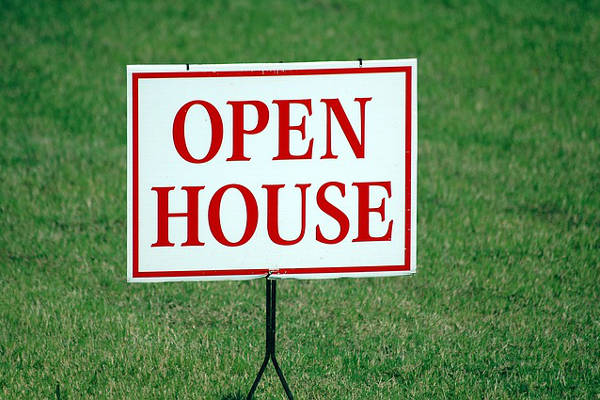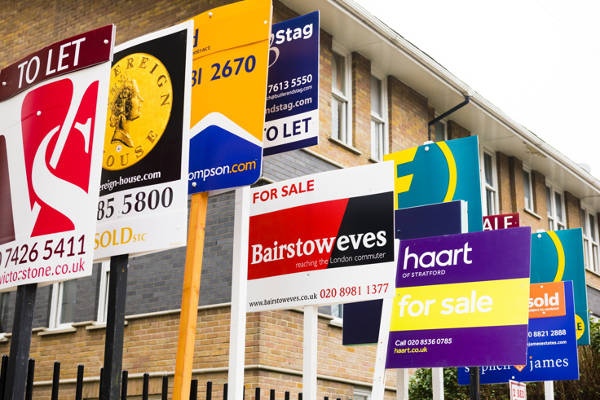For many years, auctions have been a popular way to market real estate. They are one of the fastest, most transparent and potentially most profitable ways to sell a property.
When multiple buyers set their heart on the same home, fierce competition can rapidly drive up the price. Buyers are often emotionally invested and desperate not to let their dream home slip away.
If you’re looking to sell your house fast and for the best possible market price, an auction may be the perfect solution.
However, selling your home at an auction can be daunting. And getting your head around the process is often overwhelming.
This guide on ‘Selling House at Auction’ will help to clarify:
- The costs associated with selling your house at auction.
- Which properties are best suited for an auction.
- The process of selling your house at auction and how to prepare.
- How to choose the right auction house.
- What to do if your property doesn’t sell.
Selling House at Auction
How Much Does it Cost?
Selling your home through auction is considered one of the most expensive methods of sale.
While there are no hidden fees, an auctioneer typically charges a commission between 2% – 2.5% of the home’s value + VAT. The lower the value of the property, the higher the percentage.
The auctioneer will also charge to advertise your home in their catalogue and brochures, and depending on the auction house you may also be expected to pay an entry fee and room hire fee.
When using an auctioneer, you will pay legal fees. A solicitor is required to prepare a legal pack before auction day, which should include a legal contract, title deeds and conditions of sale. The solicitor will also perform conveyancing on the day once the hammer falls. Solicitor fees are unrestricted in the UK, meaning they can vary from region to region. However, typically you will pay between £350 – £500 for all legal documents, plus an additional £450 -£700 + VAT for conveyancing on auction day.
Please be aware, that even if your property fails to sell at auction, you may still be liable to cover auctioneers and solicitor fees.
What Properties Sell Best?
There are many considerations to take into account before putting your property up for auction. Firstly, you need to determine if your property is suitable for the process. Would your property achieve a better price on the open market, or is your property more suited for a quick cash property buyer?
If your home is considered regular or commonplace, an auction is not ideal. The average ‘everyday’ home won’t attract the attention required to perform well at auction. This could result in a price that is well below market value. While it can be hard to view your own home objectively, it is important to leave emotions behind when making this kind of decision.
On the other hand, unusual or custom built homes, which are difficult to value can achieve a much higher price under open bids. Such marvel homes appeal to home enthusiasts for their unique and rare features. Aficionados are willing to pay substantial amounts to secure such properties.
Furthermore, auctions tend to attract buyers who are on the hunt for renovation projects. If your property is in particularly poor condition but has the potential for home improvement, you may achieve a better price at auction as DIY buyers compete for the highest bid.
Repossessed houses or probate sales are also commonly seen at auction. However, while this method of public bidding used to be the quickest way to sell, many people are now turning to specialised fast home buyers.
Before settling on the idea of an auction, we recommend taking a good look at your home and requesting a property appraisal. Not every home is cut out for an auction, and you may be able to secure a faster sale and better price via alternative methods.


Selling House at Auction
Advantages
Possibly achieve best possible market price: If there is sufficient buyer demand, your property could entice a bidding war. Emotionally invested consumers can make fiercely competitive bids in the heat of the moment, which can rapidly inflate the price. Inversely, if demand is weak, the opposite is true. The property could go for well below market value.
Immediate exchange of contracts: Peace of mind, knowing that once the hammer falls, the contract is legally binding. The buyer is required to pay a 10% deposit right away, and the balance completed within 28 days. Immediate contracts eliminate the risk of a buyer pulling out, but also mean no other bids offered at a later point can be accepted.
Specific sale day: Auctions can be perfect for those looking for a specific sale date. For example, if you are moving abroad and need your house sold by a particular date you can set the auction 28 days prior and be assured, provided the hammer falls, your property will sell promptly.
Extensive marketing: The auctioneer will promote your property throughout the UK. Your home will appear in their catalogue, online marketing sites and local newspaper advertisements.
Selling House at Auction
Disadvantages
Upfront fees: You will be required to pay upfront advertising and administration fees, as well as solicitor expenses. Unfortunately, even if the property fails to sell at auction, you will not be refunded for these costs.
The risk of your home not selling: Auctions can be an incredibly nerve-racking experience, especially since a sale is not guaranteed. A house will not sell if the property receives insufficient bids, or bidding fails to reach the reserve price.
The risk of selling well under market value: Auctions are unpredictable. The price obtained differs significantly between homes, and the price achieved is susceptible to a vast array of variables. Homes that garner little interest can sell well under market value, sometimes as much as 40% below.
A hunting ground for bargains: Often auctions are used as a last ditch effort to sell run down homes that have struggled to sell on the open market. Savvy buyers are well aware of this, and will frequently attend an auction with the sole purpose of buying a home at a bargain rate.
Auctioneer Commission: Auctioneer Commission ranges from 2% – 2.5% + VAT of the home’s sale price. Be aware that if the auction is unsuccessful, you may still be liable to cover the auctioneer’s commission.
Delayed ownership exchange: Assuming the property sells, the completion of sale and transfer of ownership usually does not occur until 14 – 28 days after the auction. However, this depends on the contract, so make sure you’re well aware of the terms of sale.
Time and money to prepare the property for action: To attract potential buyers you must be willing to open your home for regular viewings and surveyor inspections. This means devoting time to cleaning, tidying and making any necessary repairs to ensure the house is in tip-top shape.
How do I Prepare for Auction?
Set the reserve price: Firstly, you will need to agree upon an appropriate reserve price with the auctioneer. This is the lowest offer you are willing to accept on auction day. If the bidding fails to reach the reserve price, your home won’t sell, and the auctioneer will be forced to withdraw the property.
Set a Guide Price: Next you will need to set the guide price. This provides potential buyers with an indication of how much you expect for the property. Your auctioneer can help establish a price guide that appeals to a wide market. Even if the guide price is less than your reserve, you do not have to accept an offer around the guide price.
Prepare the contract: A solicitor is required to establish a legal contract containing the terms and conditions of the sale. An auctioneer’s brochure is handed out before auction day and includes a copy of the contact.
Open your property for viewings: Once your home has been listing in the auctioneer’s catalogue, you must be ready and willing to accommodate inspections. Smart buyers may also wish to arrange their surveyor to visit and value the property. Of course, ensure your house is always looking its best!
Receiving offers before auction: Receiving offers prior to the auction is completely legal. It is your decision whether you accept an offer or not. However, accepting an offer before the auction is risky as you don’t know whether with competitive bidding will achieve a greater or lesser price.
Auction day: The wait is over! All you can do now is hope for the best. The decision to attend the auction is up to you. Some find the experience exhilarating and enjoy the rush, although it can be overwhelming for some.
How do I Find the Right Auction House?


A high-quality auctioneer can mean the difference between an all-out bidding war or a deathly silence. However, finding the right auction house can take considerable time and effort.
There are two types of auctioneers: real estate agents with an auctioning division, and specialised auction houses.
We recommend choosing an established auction house. Although this option can be more expensive, their experience and specialised knowledge mean they are well equipped to advertise your property to a wider market of potential buyers.
Alternatively, you may find that a less well-known auctioneer can accommodate your budget. In any case, the best option is to do your research and consider the pros and cons according to your personal needs.
The most important factor to consider when researching auctioneers are credentials. Accreditation provides reassurance that the firm operates within strict regulations and standards of practice. The appropriate certification also means that all team members hold the necessary qualifications and are skilled experts within their field.
Make sure the auctioneer is a member of a professional organisation such as:
- National Association of Estate Agents (NAEA)
- National Association of Valuers and Auctioneers (NAVA)
- Royal Institution of Chartered Surveyors (RICS)
- Association of Residential Managing Agents (ARMA)
What can I do if my property doesn’t sell at auction?
In some cases, properties fail to sell at auction. This is precisely why it is crucial to have a clear understanding of your auctioneer’s procedure for dealing with unsold property.
Usually, prospective buyers who have previously displayed interest in the home are encouraged to register their interest with the auctioneer formally. This gives you the chance to negotiate a sale with the buyer outside the auction room.
Alternatively, you may wish to speak with a fast property buying company, who specialise in buying homes as quickly as possible and have the necessary funds. Accelerate Homes partner with leaders in the industry who can buy your home in as little as seven days. For any questions on selling your property fast, please contact us.
